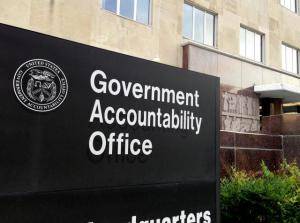
10 bills you missed while you were focused on the budget
While much of the recent attention has fallen on the president’s proposed budget, Congress has still been introducing and passing legislation. Here are a few...
While much of the recent attention has fallen on the president’s proposed budget, Congress has still been introducing and passing legislation. Here are a few bills worth knowing about that might have slipped through the cracks:
Regulations
Two bills affecting how agencies make rules and regulations passed the Senate Homeland Security and Government Affairs Committee markup earlier in May. S. 557, the “Providing Accountability through Transparency Act” proposed by Sen. James Lankford (R-Okla.), would require agencies to include a 100-word plain language summary of proposed rules or regulations, to be posted on Regulations.gov.
S. 21, Sen. Rand Paul’s (R-Ky.) “Regulations from the Executive in Need of Scrutiny Act,” would require rules and regulations to be classified as major (those that would have a $100 million or more effect on the U.S. economy) or non-major, and require they come with a cost/benefit analysis, including the number of jobs projected to be created or lost.
Meanwhile, the House Rules Committee will be taking a look at H.R. 2449. The “Sunset the CRA and Restore American Protection Act of 2017” or “SCRAP Act,” introduced by Rep. David Cicilline (D-R.I.), would repeal the Congressional Review Act, a law that gives Congress the power to review agency regulations and overrule them.
H.R. 2481
Rep. Ted Lieu’s (D-Calif.) “Protecting Our Ability to Counter Hacking Act of 2017,” or “PATCH Act,” would establish a Vulnerability Equities Review Board to establish policy on if, when and with whom government agencies share information about cyber vulnerabilities.
The board would include the secretaries of Homeland Security and Commerce, the director of national intelligence, the Federal Bureau of Investigation, the Central Intelligence Agency and the National Security Agency, or anyone they may designate in their places. Other cabinet secretaries and agency directors could be included when necessary.
The board would be required to take into account considerations such as what technology or software is affected and how it’s used, the risks of not patching the vulnerability, whether the vulnerability could be exploited by enemies, whether the federal government needs to or already is exploiting this vulnerability, the risk to foreign countries and whether it can be patched.
H.R. 2763
The “Small Business Innovation Research and Small Business Technology Transfer Improvements Act of 2017” would require the Small Business Administration to report annually to Congress on the Small Business Innovation Research and Small Business Technology Transfer programs, and require the Defense Department to use more technology developed by these two programs.
H.R. 2331
Rep. Kelly Robin (D-Ill.) is pushing government websites forward with the “Connected Government Act.” The bill would require new or updated public-facing federal websites to be made mobile friendly. The Federal Communications Commission would be required to report to Congress on efforts to fulfill this requirement after 18 months.
H.R. 2426
The “Secure Government Buildings from Espionage Act,” sponsored by Rep. Stephen Lynch (D-Mass.), would require any federal agency, before leasing a building for high-security purposes, to identify every individual benefiting from ownership of the building, particularly whether they are U.S. citizens or foreign.
This bill is a direct response to a January Government Accountability Office report that found that foreign entities owned high-security space leased by GSA in 20 buildings, through 25 leases, as of March 2016. That included properties used by the Secret Service, the Drug Enforcement Administration, the Social Security Administration and the GAO itself.
While GAO says the federal government isn’t prohibited from leasing space from foreign owners, auditors urged the General Services Administration to start sharing that information when an agency is considering a lease for a high-security purpose. GSA agreed with GAO’s recommendation, and this bill would codify it.
H.R. 2283
Rep. Bennie Thompson’s (D-Miss.) bill to improve morale at the Department of Homeland Security by adding new responsibilities for the chief human capital officer was ordered to be reported by the House Committee on Homeland Security.
The bill would have the DHS CHCO implement new measures like leadership development and employee engagement programs, the creation of a chief learning and engagement officer, and the creation and dissemination of an employee engagement action plan.
This action plan would be informed by results from an employee engagement steering committee, which would be established by the DHS secretary and include representatives from each of the department’s component agencies and employee labor organizations.
S. 585
Meanwhile, the Senate passed the “Dr. Chris Kirkpatrick Whistleblower Protection Act of 2017,” and the House has referred it to the Veterans Affairs and House Oversight and Government Reform committees. The bill would improve whistleblower protections, mandate certain punishments against supervisors who retaliate against whistleblowers, and add to the list of prohibited personnel practices.
It would require agency leadership to prioritize transfer requests submitted by whistleblowers during a stay granted by the Merit Systems Protection Board.
The bill would mandate the proposal of a three-day suspension for the first infraction any supervisor commits against a whistleblower, with an option to additionally pursue reductions in grade or pay, or any other action the agency leadership deems appropriate. For the second infraction, the bill would mandate a proposed removal of the supervisor. The supervisor would have 14 days to respond in either case.
The bill also specifically addresses the Department of Veterans Affairs. It tasks the VA secretary with developing a plan to prevent unauthorized access to medical records and a program to raise awareness of available mental health services.
S. 1083
Finally, both the Senate and the House passed a bill that automatically invokes stays whenever the Merit Systems Protection Board lacks a quorum.
Currently, the MSPB lacks a quorum because it only has one member on the board. Former Chairman Susan Tsui Grundmann resigned Jan. 7 after a one-year holdover period. The vice chairman position had already been empty since March 2015.
Copyright © 2025 Federal News Network. All rights reserved. This website is not intended for users located within the European Economic Area.
Daisy Thornton is Federal News Network’s digital managing editor. In addition to her editing responsibilities, she covers federal management, workforce and technology issues. She is also the commentary editor; email her your letters to the editor and pitches for contributed bylines.
Follow @dthorntonWFED
Related Stories

For third time, OSC says burdens on whistleblowers are too high





